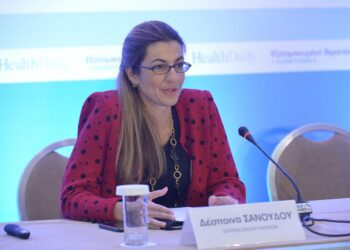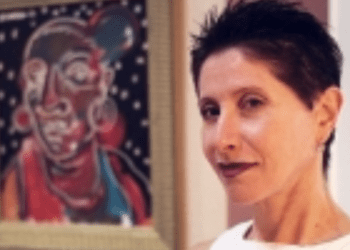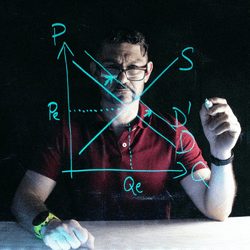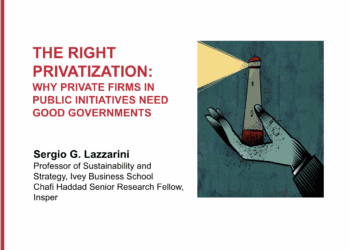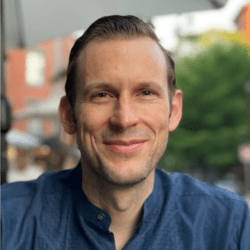
Dr. Michael Vortmann, Clinical Assistant Professor of Emergency Medicine at Tufts University School of Medicine, delivered a faculty seminar as part of Stage 3 of the 2023 Cycle One Aspire Leaders Program. Vortmann spoke about the key emergency response skills everyone should know, with knowledge of medical care around the world from his own experiences.
He did his residency at Boston Medical Center before teaching wilderness medicine at Weill Cornell Medical School – which was at the time a relatively new component of medical school curriculums.
Vortmann worked closely with Dr. Jay Lemery, Assistant Professor in Emergency Medicine and Director of Wilderness and Environmental Medicine in the Department of Emergency Medicine, who taught a wilderness elective for fourth year medical students. Upon Lemery’s move to Colorado, Vortmann took over teaching the program, taking students from the Southwest of the U.S. to the Adirondacks to immerse them into wilderness skill building.
“Growing up I loved the outdoors. I lived in California and we spent time at the ocean and in the mountains; we lived between them,” he shared. “It was always something I liked, independent of the medicine.”
Vortmann moved back to Boston in 2016 and switched over to a more clinical practice, seeing patients regularly through his role at the Cambridge Health Alliance, which is one of the largest public safety-net hospitals in Massachusetts. Currently, he works at the Beth Israel Lahey Clinic as an emergency medicine practitioner.
“I’ve worked in different settings across the field; volunteering abroad, serving affluent New Yorkers at the Weill Cornell City Hospital, and now a more tertiary clinic,” Vortmann explained. “Both the clinical settings and the patient populations have changed, so it’s given me an understanding of the diversity of the field of medicine.”
Vortmann’s work abroad started in Haiti after the 2011 earthquake, providing clinical service in resource-limited settings, which he sees as a method of wilderness medicine itself.
“There is a shared mindset in emergency medicine, which is that you don’t always get what you need, when you need it, and so you need to be creative about coming up with a solution that’s workable,” he said.
He joined a diaspora of people who had been at Harvard and traveled to Haiti to serve at a hospital just outside of Port Au Prince for patients with orthopedic injuries in need of rehabilitation. Set up on the grounds of a religious mission, it bordered an internally displaced persons camp.
A few years later, he went to South Sudan to work on a project with the International Medical Core (INC) in Acobo, in between the height of civil wars. The initiative was started to improve trauma care – to treat wounds, particularly gunshot, from increased fighting between tribal groups.
“It was a very under-resourced setting, and it was provision of care in what the UN was calling the ‘hungriest place on Earth,’” he said.
His other trips included disaster drills and teaching in the UAE and India. His work in different countries and contexts allowed Vortmann to speak to the Aspire community with an understanding of the nuances of some of their home contexts.
“In many contexts, emergency medicine is a new idea; and while it’s a good idea, it was formalized in a western context and it can’t just be tacked on to any setting,” he shared. “They may have good doctors, good nurses, good hospitals, but they don’t have good systems.”
His seminar covered universal, basic emergency skills everyone should know; emphasizing the importance of when to access care.
“It’s a powerful idea and if there are young people who live in settings where they see these problems and are young and energetic enough to make a difference, it is important to share that message and share what I know,” Vortmann explained. “There needs to be better systems and better community understanding.”
Vortmann reminded us that the world population is getting older, which is a good thing — it means people aren’t dying of things they used to — but it also means community understanding and passion to make a change in healthcare systems becomes increasingly valuable.
In engaging with ALP participants, he was intentional in leaving the medical jargon out of things, as much as possible, to ensure accessibility; focusing instead on the health conditions that all countries have to face, at different scales.
“I like teaching because it keeps work inspiring,” Vortmann expressed. “[When] teaching it to someone for the first time, [you feel] vicarious excitement.”
Vortmann also highlighted that medicine can be an easily shared discussion around the world.
“There is an element of it that is universal – it’s people’s lives [and] bodies,” he said. “It’s a common language.”
When asked what advice he would give to young adults exploring their passions today, he encouraged seeking mentorship. Particularly, he advised finding those you admire that are at different stages of their career – as building those relationships and perspectives will continue to serve you through your life.

